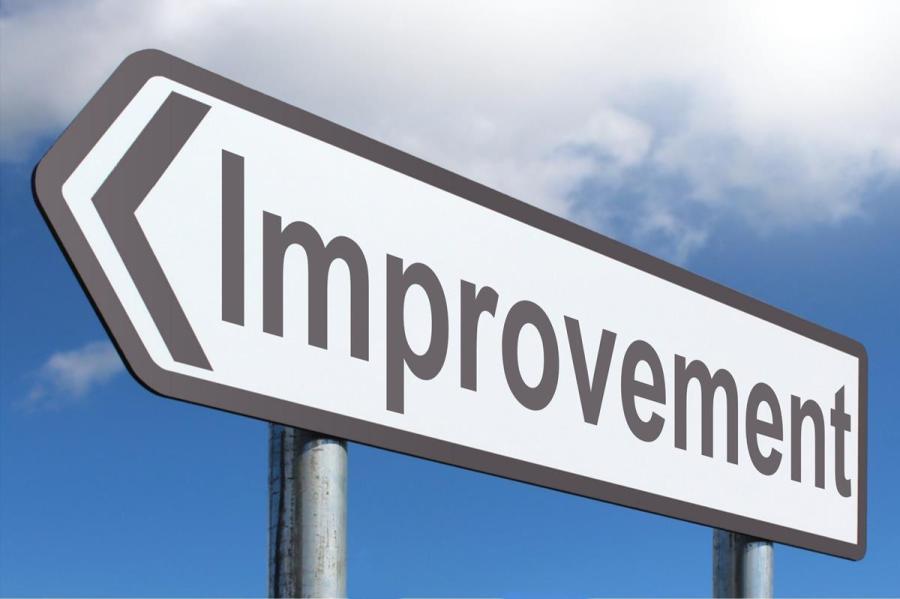
by Andy Penk
During my sophomore year of high school, I had to write a literary analysis essay for an English class. It counted for a hefty portion of my grade in the class, and I put a lot of time into writing it. I had always thought of myself as a relatively good writer, so I arrogantly assumed that my grade would reflect what I thought of myself. However, when the paper was handed back to me, my score was considerably lower than the “A” I was expecting.
Looking over the paper, I found myself frustrated by comments written in a difficult-to-interpret penmanship. I was upset, feeling that I had been unfairly cheated out of the grade that I deserved. At the end of the school day, I went to see my teacher after class, prepared to dispute why I deserved a better grade. Unexpectedly, I found my case empty and void.
My teacher and I read through the paper together, and she pointed out an array of grammatical errors throughout my paper. Many of them were the same errors involving commas, repeated again and again. After years of taking English classes, I thought that I had a relatively good understanding of how this form of punctuation worked, but I found that perception to be false through my review of the paper. Upon looking over the paper with my teacher, I had to realize that I was not as proficient with my writing as I thought I was.
From this realization, I had two options: accepting that I was not the best writer that I could be and settling for that, or accepting that I was not the best writer that I could be and learning what I did not know in order to improve my writing. While acknowledging and accepting my improficiency was difficult, I chose the latter of the options, asking my teacher to explain how to properly use commas and other punctuation marks. A half hour later, I left the classroom, having a much better understanding of how to use grammar correctly.
While I did not get the “A” that I had wanted on the paper, I realized that the paper had more value than a letter grade. My poor grade on the paper prompted me to talk to my teacher and learn the grammatical functions that I did not know. Looking back, I view this paper as my biggest step towards becoming a better writer. Until that point, I had thought that improvement should be done to my papers and not necessarily to my writing. I thought too highly of myself and could not fathom the idea that my writing skill was not optimal. I needed someone to take me down from the clouds and show me that there is always room for improvement.
Over time, I have found that becoming a better writer is a far better goal to strive for than simply trying to make individual papers the best that they can be. While it is not wrong to want a paper to be great, making oneself an all-around better writer is a goal that will better one far more in the long run. Perhaps one would ask how to go about improving their writing. I suggest two strategies.
The first of these is researching what it is that one does not know and then applying this newfound knowledge in one’s writing. As far as what this would like, one example could be that a person struggles adhering to grammar mechanics. Grammar mechanics exist to be adhered to, and professors will probably deduct points for not following them. In order to improve his/her adherence to grammar mechanics, the individual can find and read a writing manual, which will almost certainly contain the answers to whatever grammatical questions the person has. Also, one could use Google as a resource. The internet can be a very useful resource, assuming the individual can verify the validity of the sources one uses.
Once one has gained knowledge from these sources, he/she should then apply the knowledge to his/her writing. If one learns a new grammatical rule through his/her research, the person should make sure that he/she follows the rule. For example, if one’s grammatical research leads him/her to find that a comma needs to be placed before a coordinating conjunction, a conjunction that connects two independent clauses, the person should focus on putting commas before coordinating conjunctions in any piece of writing that the person does. Consistently applying grammatical rules to different types of writing, from text messages to research papers, will help instill these rules in the individual and gradually improve their overall writing skill.
The second strategy is asking someone for help in improving one’s writing. When I was growing up, my mother often said, “If you don’t know something, ask.” If one has a question about a grammatical mechanic or wants feedback on a paper, asking someone for help is just as good of a resource — if not better — than referring to a physical or online text for answers. The Writing Center is an excellent resource on campus, whose aim is to help make better writers. Any questions or concerns that one has about writing, whether they be grammatical, organizational, or otherwise, can be addressed at the Writing Center.
It is okay not to be the best writer in the world. Writing can always be improved upon; perfection is an aspiration — not a reality. With that mind, one should try to be the best writer that one can be, which involves recognition of the areas where one falls short as a writer and using the resources available to him/her to improve. It is not a sign of weakness or inadequacy to ask for help or to admit that one does not know something. Acknowledging one’s own room for improvement and taking the steps to improve in reality, is very respectable.